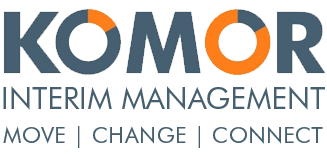Top Tips for Interim Managers and companies that want to hire Interim Managers
Norrie Johnston, one of the leading British Interim Recruiters, shares his best tips for Interim Candidates. This quick checklist should hopefully give you the most answers.
INTERIM MANAGER: these questions, thoughts and hints can be used to prepare the presentation and to plan the initial phase of a mandate.
CUSTOMER: Questions, thoughts and hints on how to prepare for the assignment of an Interim Manager – this part can be found on the seven pages of the PDF (German) for download.
Selling yourself as an interim candidate
- Ensure that your CV sells what you are really good at. 3 or 4 pages is normal.
- Begin with “Profile” which tells the reader within a few lines who you are and what you are famous for.
- Include data on the size of companies that you have worked for, plus data on your responsibilities (number of staff managed, budgets, targets).
- You are selling your past experience, not your future aspirations. Eg: a good interim sales director candidate will have been a successful sales director at least 3 times before and ideally will have reached a higher level once before becoming an interim
- Include on page one a “Relevant Experience” summary in your CV for a job application. This needs to show why you are exactly the right person for the role and that you have done the same role 2 or 3 times before. Are you a 90% match? against the client brief. At any one time there are lots of good interims chasing a small number of interim roles.
- Do not mention “consultant” in your CV. Consultants are advisors. Interims are people of action and doers.
- Do not suggest that you can tackle most things. A good interim is not a “jack of all trades”
- Register for job alerts with job boards such as: Executivesontheweb
- Ensure that your LinkedIn profile is updated and has several strong recommendations from previous bosses/clients
The Client Interview
- Usually only 1 interview of 1-hour duration for Interim
- Much shorter process than for permanent
- Be enthusiastic, energetic and confident
- Look and feel the part
- Take evidence of similar projects/successes
- Don’t talk rates or terms! (refer to the agency)
- Agree the Deal
- You sell to the agency who marks up and sells on to the client. Back-to-back terms based on the REC’s (the industry trade body) terms.
- Agree terms and start date with the agency
- Never leave a project until the client says “Great work, well done… you can go now.”
- Good interims will usually be extended beyond the initially estimated duration and will frequently be asked if they would like to join as a permanent member of staff
Day One
- Introductions by the client sponsor
- Ensure that the project is fully supported by the client
- Sell yourself and win confidence of immediate reports and seniors
- Expect it to be twice as bad as indicated in the interview
- Keep a log book of meetings, discussions, observations
Weeks One and Two
- Meet as many people inside and related to the business as possible. Ask lots of questions.
- Re-visit the brief. Confirm the 4 or 5 key issues/tasks.
- Daily feedback to client sponsor. Test first impressions.
- Be flexible. You are no longer an employee. You are a supplier to the client.
- Now that you have got this far you have a 95% chance of succeeding!
During the Assignment
- Stay focussed on the 4 or 5 agreed key issues (don’t try to fix everything you find wrong). Fix these and you’ll be a hero
- Meet weekly with the project sponsor
- Be aware of politics but don’t get involved
- Don’t try to tackle stuff that is outside your experience – call for other expert help
- Give your expert and impartial advice, even if the news is not always popular
Questions about the mandate - What exactly is it about?
You can find further questions for clarification before assigning an interim manager here
I SUPPORT YOU ON THE WAY TO YOUR SUCCESS
I am a strategist, an innovator, an unconventional thinker, a mover and shaker and therefore I do the right things sooner and better.
And with pleasure also for you.
Together we can discover new market opportunities, steer product branding into the right direction, understand your customers better – and stand out from the competition with tailor-made products for your target group. All this leads to more customer satisfaction, greater customer lifetime value and more sales potential.
Can you afford not to go for it?






